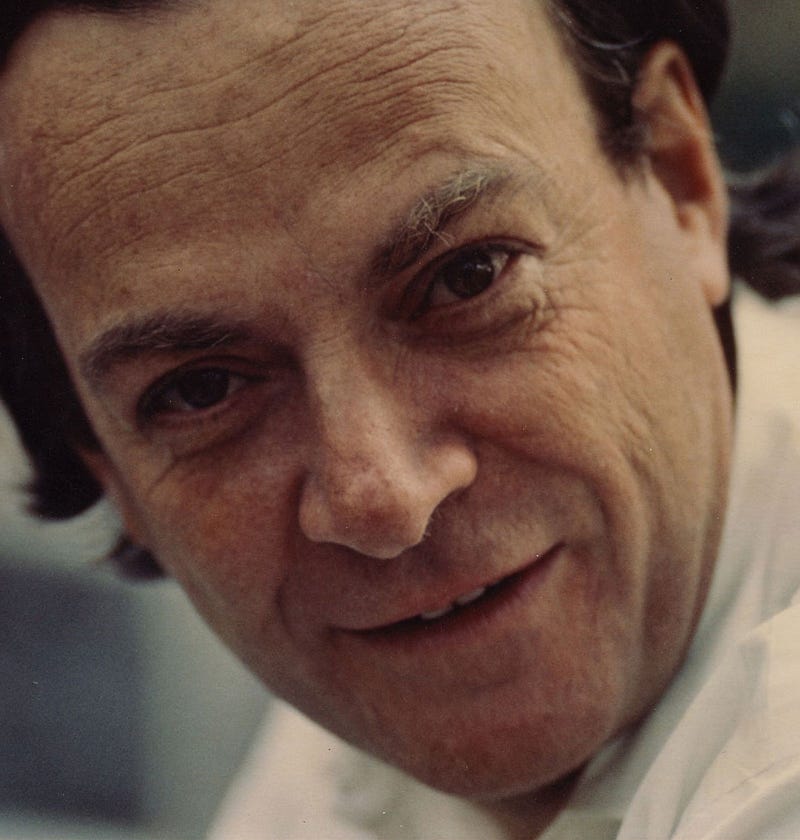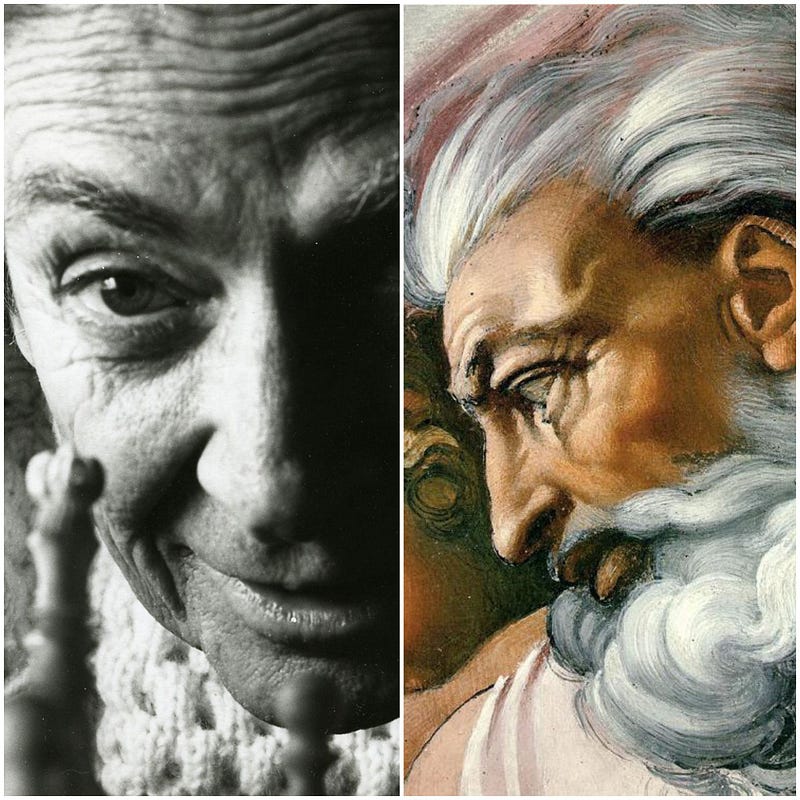Richard Feynman's Unique Perspective on God and Religion
Written on
Chapter 1: The Eccentric Genius
Richard Feynman is often regarded as one of the most unconventional intellects in history. His engaging teaching style, knack for simplifying complex concepts for the general public, and diverse interests—ranging from bongo drumming to safe-cracking—distinguished him within the scientific community. As a 1965 Nobel laureate, Feynman's critical role in the investigation of the Challenger Shuttle disaster in 1986 further amplified his global recognition.
Many notable scientists have held beliefs in the supernatural, a topic I have explored in previous writings, such as:
- 5 Great Physicists Who Believed in the Existence of God
- Are Religion and Science Reconcilable?
However, the incompatibility of religion and science cannot be overlooked. Science discusses theories like evolution and the Big Bang, while many religious doctrines oppose these concepts. This clash exemplifies the broader discord between the two realms, as religious teachings often contradict scientific discoveries.

Chapter 2: Feynman's Scientific Contributions
Feynman's work spanned several scientific disciplines, particularly theoretical physics. He made significant strides in quantum electrodynamics, the superfluidity of supercooled liquid helium, and particle physics, notably through the creation of Feynman diagrams, which visually represent particle interactions with electromagnetic radiation. Yet, this narrative focuses on Feynman's perspectives regarding the existence of God.
During an interview, Feynman identified as an atheist when questioned about his beliefs, a sentiment recorded in Denis Brian's 1995 book, The Voice of Genius: Conversations with Nobel Scientists and Other Luminaries. Although Feynman was raised in an Ashkenazi Jewish household, he explicitly rejected the notion of a deity.
In a 1963 lecture at the University of Seattle, part of the John Danz Lecture Series, Feynman remarked on the significance of reflecting on the universe and the inherent uncertainties of science:
“It is a great adventure to contemplate the universe, beyond man, to contemplate what it would be like without man... When this objective view is finally attained... to then turn the objective eye back on man viewed as matter... is to sense an experience which is very rare, and very exciting.”
The same insights appear in the 1998 paperback edition of The Meaning of It All, published nearly a decade after his passing.

Chapter 3: Skepticism Towards the Supernatural
Feynman's skepticism regarding the supernatural was articulated in a 1959 statement found in his biography Genius by James Gleick. He conveyed his doubts about the universe being merely a stage for divine observation, stating:
“It doesn’t seem to me that this fantastically marvelous universe... can merely be a stage so that God can watch human beings struggle for good and evil.”
In the 1988 book Superstrings: A Theory of Everything? by Paul Davies and Julian Brown, Feynman expressed the idea that the concept of God is often invoked to explain mysteries we do not yet comprehend. He explained:
“God was always invented to explain mystery... you leave him to create the universe because we haven’t figured that out yet...”
Despite his atheism, Feynman maintained a respectful stance towards religion, viewing it as a matter of personal faith that should not be disrespected. His approach to religion was informed by his scientific perspective, showing little interest in engaging in religious debates.
In Freeman Dyson's 2006 book, The Scientist As Rebel, he noted that Feynman did not seek to undermine anyone's faith:
“Feynman has no interest in scholastic arguments... He respects religion as an important part of human nature. He does not himself believe in God, but he has no wish to destroy other people’s belief.”
The first video, "On Religion," discusses the interplay between scientific inquiry and religious belief, reflecting Feynman's views.
The second video, "Richard Feynman on Religion," explores his thoughts on faith and skepticism.
References:
- Superstrings: A Theory of Everything?
- Genius: The Life and Science of Richard Feynman
- The Meaning of It All: Thoughts of a Citizen-Scientist
Thank you for reading! If you enjoyed this article, please consider supporting my work. Your engagement is greatly appreciated!